MCQ ON CLASS REPTILES class 11 for NEET | MCQ ON NEET Biology class 11th 2022 | MCQ Questions for class 11 Biology chapter – 4 CLASS REPTILES with Answer | Check the below NCERT MCQ question for class 11 Biology chapter 4 based on CLASS REPTILES with Answers.
MCQ Questions for class 11 Biology with Answers were prepared based on the latest pattern.We have provided class 11 Biology MCQs questions on CLASS REPTILES with Answers to help students understand the concept very well.
MCQ on CLASS REPTILES is useful for NEET / CSIR / UGC / CBSE / ICSE / AIIMS / EXAM / AFMC EXAM / STATE LEVEL MEDICAL EXAM 2022-23
Introduction:-
The reptiles were the first vertebrates Fully adapted for life on dry land.Some live in water but they too return to land for breeding .The class reptiles includes lizard , snake , tortoise , turtles , alligators and crocodile.Body form is divisible into head , neck ,trunk and tail.Skin is rough and dry , endoskeleton is bony.Skull is monocondylic, the mouth is large , kidneys are metanephric.
MCQ ON CLASS REPTILES class 11 for NEET
1. Creeping or crawling mode of locomotion is found in
(a) amphibians
(b) aves
(c) reptiles
(d) all the above
Ans (c) reptiles
2. They are mostly terrestrial animals and their body is covered by dry and cornified skin, epidermal scales or scules found in
(a) reptiles
(b) aves
(c) mammalia
(d) all the above
Ans. (a) reptiles
3. Heart of reptiles contain
(a) two chambers
(b) three chambers
(c) four chambers
(d) all the above
Ans. (b) three chambers
4. The reptiles shed their scales as skin cast
(a) snakes
(b) lizards
(c) both a and b
(d) all the above
Ans.(c) both a and b
5. They are oviparous and development is direct
(a) reptiles
(b) mammals
(c) amphibians
(d) all the above
Ans.(a) reptiles
ALSO READ:-
● YOU CAN WATCH BIOLOGY SIR Youtube channel
6.The four chambers of heart is found in
(a) turtle
(b) crocodile
(c) alligator
(d) all the above
Ans.(b) crocodile
7. Poisonous snake is
(a) naja
(b) rana
(c) hyla
(d) salamandra
Ans.(a) naja
8. The tree lizard is
(a) chameleon
(b) crocodile
(c) bufo
(d) all the above
Ans.(a) chameleon
9. Garden lizard is
(a) chameleon
(b) calotes
(c) hyla
(d) ichthyophis
Ans. (b) calotes
10. Tympanum represent in reptile.
(a) eyes
(b) ear
(c) nose
(d) tongue
Ans. (b) ear
11. The wall lizard is
(a) naja
(b) hemidactylus
(c) alligator
(d) all the above
Ans.(b) hemidactylus
12. Chameleon, crocodilus , chelone and naja are under class of ?
(a) reptilia
(b) amphibia
(c) aves
(d) all the above
Ans.(a) reptiles
13. Pairs of cranial nerves is found in
(a) 9 pairs
(b) 10 pairs
(c) 11 pairs
(d) 12 pairs
Ans.(d) 12 pairs
14. Kidneys in reptiles are ?
(a) mesonephric
(b) metanephric
(c) mesonephric
(d) all the above
Ans.(b) metanephric
15. The respiration in reptiles is done by
(a) gills
(b) lungs
(c) kidneys
(d) all the above
Ans. (b) lungs
16. The age of reptiles is regarded as ?
(a) Cenozoic
(b) mesozoic
(c) palaeozoic
(d) zurassic
Ans.(b) mesozoic
17. Which one of the following is not a poisonous snake ?
(a) cobra
(b) viper
(c) python
(d) krait
Ans.(c) python
18. Which one of the following is oviparous
(a) platypus
(b) flying fox
(c) elephant
(d) whale
And.(a) Platypus
19. Which of the following pairs of animals has non glandular skin ?
(a) snake and frog
(b) chameleon and turtle
(c) frog and pigeon
(d) crocodile and tiger
Ans. (c) frog and Pigeon
20. Reptiles are
(a) endothermic
(b) ectothermic
(c) both a and b
(d) all the above
Ans.(c) both a and b

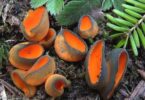
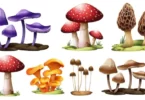
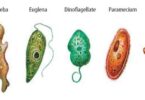
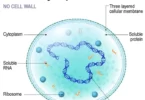
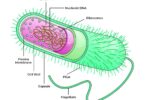
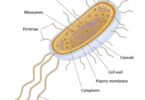
Leave a Comment